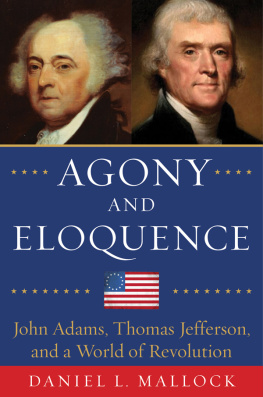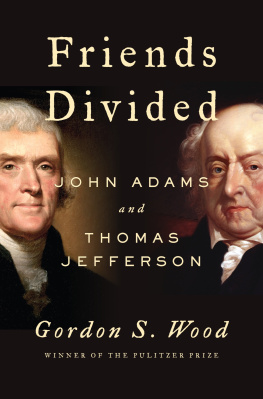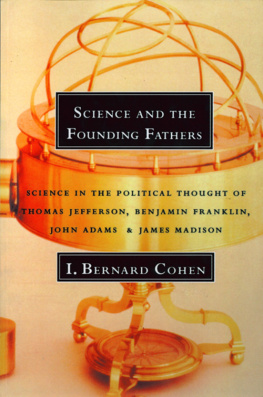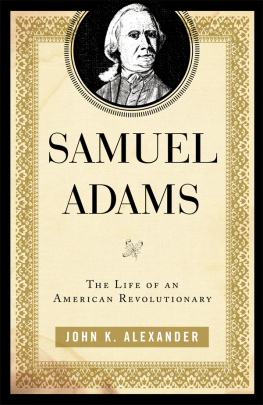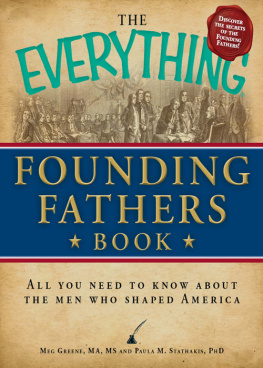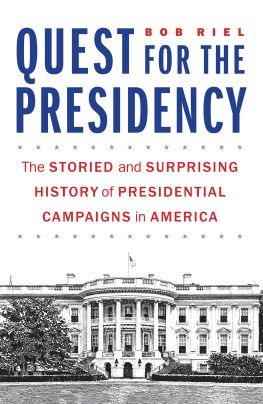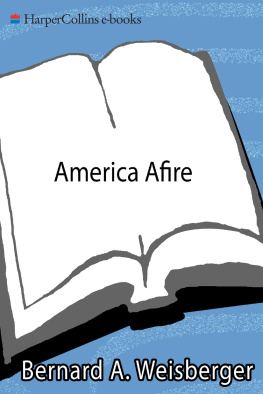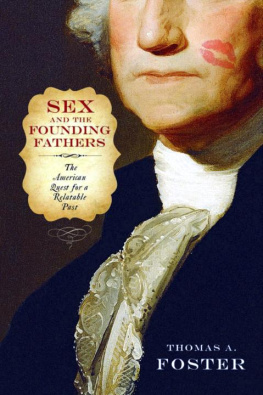ALSO BY EDWARD J. LARSON
Trial and Error
The American Controversy Over Creation and Evolution
Sex, Race, and Science
Eugenics in the Deep South
Summer for the Gods
The Scopes Trial and Americas Continuing Debate
Over Science and Religion
Evolutions Workshop
God and Science on the Galapagos Islands
Evolution
The Remarkable History of a Scientific Theory
The Constitutional Convention
A Narrative History from the Notes of James Madison (with Michael Winship)
The Creation-Evolution Debate
Historical Perspectives

FREE PRESS
A Division of Simon & Schuster, Inc.
1230 Avenue of the Americas
New York, NY 10020
Copyright 2007 by Edward J. Larson
All rights reserved, including the right of reproduction in whole or in part in any form.
F REE P RESS and colophon are trademarks of
Simon & Schuster, Inc.
Library of Congress Cataloging-in-Publication Data
Larson, Edward J. (Edward John)
A magnificent catastrophe: the tumultuous election of 1800:
Americas first presidential campaign / Edward J. Larson.
p. cm.
Includes bibliographical references and index.
1. PresidentsUnited StatesElection1800. 2. Jefferson, Thomas, 17431826. 3. Adams, John, 17351826. 4. Burr, Aaron, 17561836. 5. Hamilton, Alexander, 17571804. 6. United StatesPolitics and government17971801. 7. Political cultureUnited
StatesHistory18th century. 8. Political cultureUnited StatesHistory19th century. I. Title.
E330.L37 2007
324.973dc22 2007016017
ISBN-13: 978-1-4165-6840-7
ISBN-10: 1-4165-6840-9
Illustration credits will be found on back matter.
Visit us on the World Wide Web:
http://www.SimonSays.com
In the spirit of
John Adams and Thomas Jefferson
whose fatherly love and respect for their daughters
ran through and enriched their adult lives,
I dedicate this book to our daughter,
Sarah Marie Larson
Be assured that to yourself, your sister, and those dear to you, everything in my life is devoted. Ambition has no hold on me but through you.
THOMAS JEFFERSON TO HIS DAUGHTER, MARTHA FEBRUARY 5, 1801
Heaven has blessed you, my daughter, with an understanding and a consideration that is not found everyday among young women. With the most fervent wishes for your happiness, I am your affectionate father.
JOHN ADAMS TO HIS DAUGHTER, NABBY AUGUST 13, 1783
[My] happiness is wrapped up in yours.
THOMAS JEFFERSON TO HIS DAUGHTER, MARIA JULY 4, 1800
PREFACE
T HE RESEARCH that culminated in this book commenced with an invitation to deliver a single lecture on the role of science and religion in the election of 1800. Coming as it did at the sunset of the Enlightenment and the dawn of the Great Revival, the 1800 campaign occurred at the pivot point of massive cultural forces in the history of American science and religion. Those forces necessarily affected the election, and not simply because Thomas Jefferson bore the mantle of Enlightenment science while John Adams invoked Protestant traditionalism as a vital prop for civil society.
Exploring this topic, I found a rich interplay of ideas and actions among protagonists who cared deeply about issues and knew that they were forging the traditions of a great new nation. Jeffersons Republican running mate, Aaron Burr, was the grandson of Americas greatest evangelical theologian, Jonathan Edwards, for example, and Adamss Federalist running mate, Charles Cotesworth Pinckney, served for fifteen years as the president of the Bible Society of Charleston. In the end, however, I could not separate the topic of science and religion from other issues driving this critical election that, more than any other, stamped American democracy with its distinctive bipartisan character. Over time, my brief lecture grew into this book dealing with the election as a whole.
As my topic grew, my indebtedness to other scholars grew as well. For a season, I titled my manuscript The Founders Coda in recognition of the role played by the nations founders in this election. Here, as participants in an extraordinarily bitter election contest, they transformed the political structure of the American union and set it on its modern course. Their names, first made famous during the Revolutionary Era, sounded again in 1800: Adams, Jefferson, Hamilton, Madison, Jay, Monroe, Gouverneur Morris, George Clinton, John Marshall, Thomas McKean, and even George Washington. For generations, some of the nations finest historians have examined and reexamined these founders, with an extraordinary flowering of such books published over the past two decades. I have benefited immeasurably from their broad insights in my focused study of the 1800 election. I have also profited from the considerable scholarship on the election itself, including recent books by my friend Susan Dunn, who frequently collaborates with my esteemed former teacher at Williams College, James MacGregor Burns, and by my cross-state colleague within the University of Georgia system, John Ferling. Further, over the years, archivists, librarians and historians have assembled remarkably comprehensive collections of the letters and writings of Washington, Jefferson, Hamilton, Madison, Marshall, and other founders, and of early American newspapers and pamphlets. In exploiting these resources for this book, I have regularized punctuation, capitalization, and spelling. The medieval scholar Bernard of Chartres first spoke of seeing further by standing on the shoulders of giants, and it certainly applies to me in this work.
As a teacher at the University of Georgia and Pepperdine University, I have learned much from my colleagues and students. For this book, I particularly benefited from my collaboration with Georgias exceptional colonialist, Michael Winship, on a book about the Constitutional Convention, and from research assistance provided by Judkin Browning for my initial lecture on science and religion in the election of 1800. My status as the Russell Professor of American History at the University of Georgia facilitated my investigation of this political topic, and I want especially to thank Charles Campbell, the former U.S. Senate aide who now chairs the Russell Foundation, for his interest and support. I also had the good fortune of securing research assistance from Michael Coenan, who worked in Athens, Georgia, during 200506 as a campaign aide to my former Harvard Law School classmate, Congressman John Barrow. Coenan, now at Yale Law School, immersed himself in the complexities of the 1800 New York election even as he helped his own candidate win reelection. Further, my thanks go to the librarians at Georgia and Pepperdine who assisted in securing source material used in this book and to Philip J. Lampi of the American Antiquarian Society for providing data from the Societys extraordinary First Democracy Project.
Through their assistance, friends and family made this book into a reality. First came my dogged and determined agent, B. G. Dilworth, who pushed and pulled a book proposal out of me. Then came my initial editor at Free Press, Fred Hills, who helped me to reconceive the books basic structure and saw me through the first draft. Following Freds retirement, Emily Loose took over my draft chapters and wonderfully transformed them through her editorial suggestions, which were both meticulous in their attention to detail and comprehensive in their conception of the whole. Through it all, my wife, Lucy, and our children, Sarah and Luke, have graciously borne with my preoccupation with this project and encouraged me by their words, actions, and interest. Our dog, Pippin, cheered me on by expectantly lying at my side as I labored on particularly difficult passagesalthough I suspect his patient expectations revolved more around walks than finished chapters. At every stage, I felt extraordinary support. I hope that the final product is worthy of the assistance that I have received from so many.


